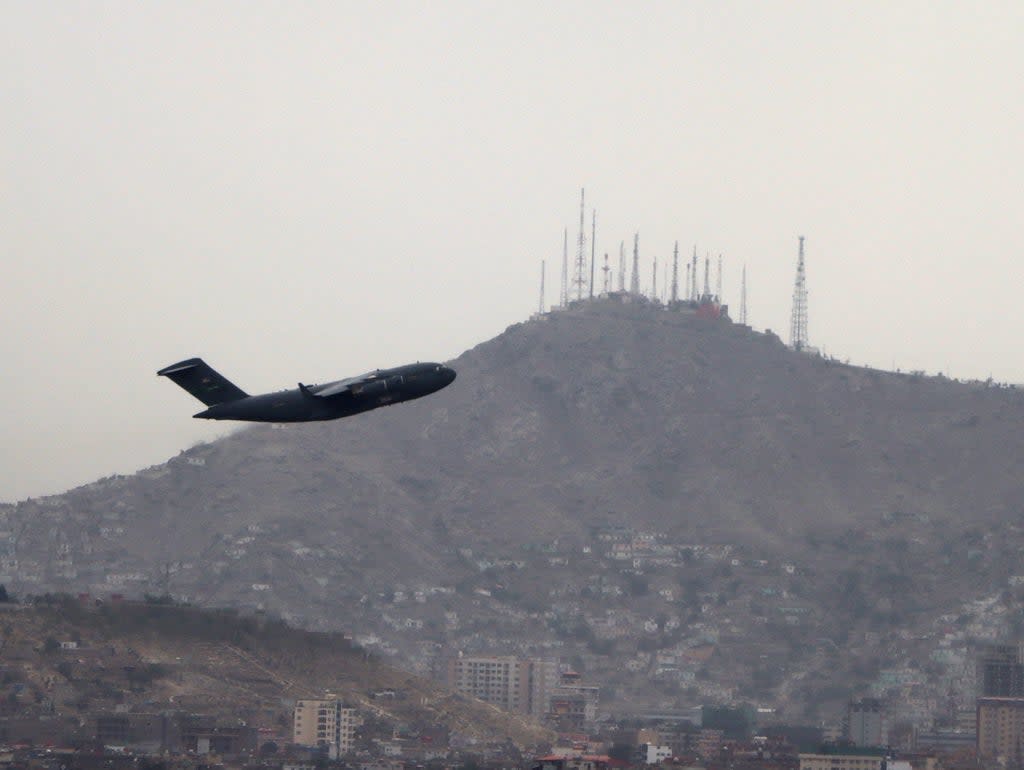‘Taliban now faces a test’: World reacts to US pullout from Afghan soil

America’s hasty pullout from Afghanistan, culminating a 20-year war, was criticised on Tuesday by security experts worried about terrorist activities in the war-ravaged country.
The exit, which was planned by Donald Trump’s government and implemented by the Joe Biden administration, has led to a humanitarian crisis, including deaths of Afghan civilians and US troops.
“I’m afraid our political leadership, and in particular president Biden over the last six months, have let those people down, us and the Afghans,” former British chief of defence staff Lord David Richards told the BBC.
CNN’s military analyst Cedric Leighton said a very difficult phase awaited Afghanistan and the US to manage its diplomatic operations in the coming days.
The war in #Afghanistan is over, but Colonel @CedricLeighton says it's going to be tough to get the remaining Americans out, along w/thousands of #Afghan allies. After a deadly exit, he says the chaos was inevitable, but "... it certainly could have been managed better." pic.twitter.com/zRPGhwBAAK
— Rosemary Church (@rosemaryCNN) August 31, 2021
Referring to evacuation of remaining Americans from Afghanistan, Mr Leighton said: “I know that Secretary Blinken (US secretary of state Antony Blinken) in his remarks made it very clear they were going to continue to work on this from state department perspective but its hard to do these kinds of very delicate, diplomatic moves from a country like Qatar.”
He was referring to the US suspending its diplomatic presence from Afghanistan and conducting operations out of Qatar.
Logistically, the evacuation will be difficult to manage, Mr Leighton told CNN in an interview.
“I am suspicious that it may not be as robust an effort as many of us would want in terms of whether or not to do an evacuation without chaos, probably not. The way it went down, it certainly could have been managed better,” he said.
Former vice chief of staff General Jack Keane said US should have left behind a modest force on the ground to track terrorism activities in Afghanistan.
U.S. military flights have ended and our troops have departed Afghanistan. A new chapter of America’s engagement with Afghanistan has begun. It’s one in which we will lead with our diplomacy.
— Secretary Antony Blinken (@SecBlinken) August 31, 2021
“We had connections to the Afghan people and security forces. Those eyes and ears are gone. You cannot track that kind of terrorism with satellite imagery,” General Jack Keane said, according to a report.
A key area of concern is the handling of Kabul International Airport – the only entry and exit route to the country in the last couple of weeks – which is now in the Taliban’s grip.
Experts have pressed for a foreign country’s presence there, stating this to be of significant importance.
“A foreign security presence would be necessary if airlines were to return, and that a deal could yet be struck,” Michael Kugelman, a South Asia specialist at the Wilson Centre think tank in Washington told news agency AFP, pointing to a “very volatile environment security-wise”.
US special envoy Zalmay Khalilzad, in a series of tweets, said the Taliban now faces a “test” and the Afghan citizenry, “a moment of decision”.
2/5 With the departure of our military & those of the many partners who stood w/ us, Afghans face a moment of decision & opportunity. Their country's future is in their hands. They will choose their path in full sovereignty. This is the chance to bring their war to an end as well
— U.S. Special Representative Zalmay Khalilzad (@US4AfghanPeace) August 30, 2021
“The Taliban now face a test. Can they lead their country to a safe & prosperous future where all their citizens, men & women, have the chance to reach their potential? Can Afghanistan present the beauty & power of its diverse cultures, histories, & traditions to the world?” Mr Khalilzad said.
Shortly after the last of the American soldiers left the country, celebratory firing erupted, with the Taliban’s spokesperson declaring the “complete freedom” of Afghanistan from the US, which evacuated about 120,000 US citizens, those of allied countries and some Afghan allies.
There are, however, reports of many US citizens and thousands of desperate Afghans who still remain in the country.
The United Nations Security Council, on Monday adopted a resolution requiring the Taliban to give safe passage to those who wished to leave the country.
The resolution was adopted by all the member countries, except Russia and China, who did not veto it either. Several political commentators point out that the two countries now stand to benefit the most from US’s exit.
Their involvement in the war-torn country, however, would be “a high-risk, high-reward proposition for both nations,” according to a Bloomberg report.
Read More
What is the difference between the Taliban and Isis?
Why did US leave Afghanistan and how much did America spend?
The Taliban: Who are they, who are the leaders and what do they want?


